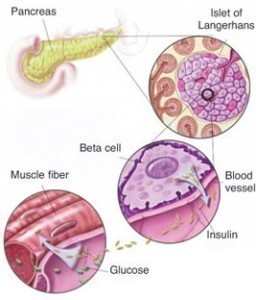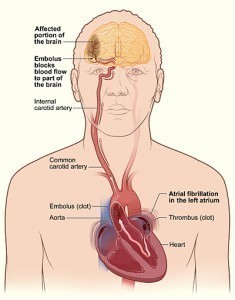Diabetes Remedy
Diabetes is a disease that is characterised by the human body’s inability to properly regulate its blood sugar level. When we ingest sugar, it is broken down into glucose during digestion. The glucose is then circulated around the body, via the bloodstream, to be used as fuel for energy. A healthy pancreas contributes to this process by producing the hormone insulin, which helps move the glucose into cells. The pancreas achieves this by adjusting the amount of insulin based on the level of glucose, but if you have diabetes, this process becomes dysfunctional and blood levels become too high.
 There are two types of diabetes: Type 1 and Type 2; Type 1 diabetes renders the body completely incapable of producing insulin. People with Type 2 diabetes can produce insulin, but their cells do not respond to it. Both Types result in the glucose being unable to move into the cells and blood glucose levels, as a result, become very high. With time, the resulting high glucose levels cause grave complications.
There are two types of diabetes: Type 1 and Type 2; Type 1 diabetes renders the body completely incapable of producing insulin. People with Type 2 diabetes can produce insulin, but their cells do not respond to it. Both Types result in the glucose being unable to move into the cells and blood glucose levels, as a result, become very high. With time, the resulting high glucose levels cause grave complications.
Natural Remedies for Diabetes
The nature of Type 1 diabetes does not leave much room for holistic treatment. If the body is not producing any insulin at all, then the most relevant treatment is an intake of insulin. For Type 2 diabetes, however, there are certain natural approaches that can be taken in controlling diabetes along with standard treatment. Ensure you use these natural remedies under the supervision of a qualified health professional.
- Ginseng; the most promising studies on ginseng show that North American ginseng may effectively improve blood sugar control and glycosylated haemogobin–a form of haemoglobin in the blood used to monitor blood glucose levels over time–levels.
- Chromium is an essential trace mineral that plays an important role in the metabolism of carbohydrates and fats. It helps the body cells to respond adequately to insulin, and studies show that low levels of chromium exists in people with diabetes. Studies also, suggest that chromium supplements may be effective in controlling diabetes; however, these studies are inconclusive. One form of chromium that is not recommended is chromium picolinate–do research to learn more about chromium supplementation and diabetes.
- Magnesium mineral, found naturally in green leafy vegetables, nuts, seeds, whole grain foods and nutritional supplements, is required for the effectiveness of more than 300 biochemical reactions. Magnesium helps in blood sugar level regulation and is needed for normal muscle and nerve function, heart rhythm, immune function, blood pressure and bone health. Studies show that after 16 weeks, people who take magnesium have improved insulin sensitivity and lower fasting glucose levels. Despite all the positive functions of magnesium, high doses of the mineral may cause grave side effects.
- Gymnema; several preliminary studies have suggested that the herb gymnema may have properties suited to lowering blood sugar levels in people with Type 2 diabetes. Because gymnema has the capacity to lower blood sugar levels, people taking medications for diabetes, or using insulin should not take gymnema simultaneously unless they are being closely monitored by their doctor.






